M.A Brahui 3rd Semester.
- Teacher: Yousaf Mengal
M.A Brahui 3rd Semester.
M.A Brahui 3rd Semester.
M.A Brahui 3rd Semester.
M.A Brahui 3rd Semester.
M.A Brahui 1st Semester.
M.A Brahui 1st Semester.
M.A Brahui 1st Semester.
BS-Brahui 2nd Semester.
BS-Brahui 2nd Semester.
BS Balochi 2nd Semester
M.A Balochi 3rd Semester Session (2019-2020)
M.A Balochi 3rd Semester Session (2019-2020)
M.A Balochi 3rd Semester Session (2019-2020)
M.A Balochi 3rd Semester Session (2019-2020)
M.A Balochi 1st Semester Session (2020-2021)
M.A Balochi 1st Semester Session (2020-2021)
M.A Balochi 1st Semester Session (2020-2021)
M.A Balochi 1st Semester Session (2020-2021)
B.S Balochi 3rd Semester Session (2018-2022)
B.S Balochi 3rd Semester Session (2018-2022)
B.S Balochi 2nd Semester Session (2019-2023)
B.S Balochi 2nd Semester Session (2019-2023)
MA 1st
MA 3rd semester
MA 1st semester
MA 3rd Semester
B.S Pashto 2nd semester
Saliant features of this core course are shared in Pashto as under
Courses Objectives د کورس مرامونه
د دې کورس په نتيجه کښې به لوستونکي په دې وتوانيږي چي هغوی د جمالياتو فکري، نظرياتي او تکنيکي ارزښت و پېژني، د جمالياتو د نړيوال نظرياتو په تاريخ او هيت پوهه شي، او د هغۀ په نتيجه کښې د پښتو د کلاسيکي ادب جمالياتي ارزښت و سنجوي
لوستونکي به په دي وتوانيږې چي د ادب او جمالياتو تر مينځ بنيادي اړيکي او عمومي اشارې و پېژني او د تحليل هنر او مهارت و مومي
د اوسمهاله ادبي تهيوري د جمالياتو څه ډول تفسير وړاندي کوي، او انساني ټولني د جمالياتو څه ډول زوق تخليقوي؟ دا او داسي ډېر سوالونه دي چي د لوستونکو د ادبي مطالعې او هنر لپاره لازمي دي، هم دغۀ ډول پوښتني به په دي کورس کښې مطرح کيږي.
د ادب تر څنګ د آرټ په نورو فنونو کښې د جمالياتو دوړتيا او وقدر تعين کول او په اوسمهاله وخت کښې چي پښتانه د کومو ټولنيزو، سياسي او معاشي حالاتو سره مخ دي، د هغۀ په نتيجه کښي د ټولني د “اجتماعي” جمالياتي ذوق څه ډول تغير خوړلی دی (يا يې خوري) په دې حقله به بشپړۀ مکالمه او پلټني کيږي.
1. ارمغان خوشحال. (۲۰۰۱)، مولف سيد رسول رسا، يونيورسټي بک اېجنسي پېښور،
2. اسرار، شاهد .(۲۰۱۴). قاري اساس تنقيد ، خپرونکی پښتو اکېډۍ کوټه
3. خټک ، اقبال نسيم (۱۹۹۹). د رنګ او بو قافله. پښتو اکيډمۍ پېښور
4. خټک. ډاکټړ محمد اقبال نسيم . (۱۹۸۷). خوشحال او جماليات. پښتو اکېډمۍ پېښور يونيورسټۍ ، خيبر پښتونخوا
5. د حميد بابا دېوان (۲۰۰۶) دانش خپرندويه ټولنه ،پېښور
6. د عبدالرحمان بابا دېوان (۲۰۱۷)خپرونکی پښتو اکېډۍ کوټه
7. درانی، دروېش. (۲۰۱۸) کړۀ کتنه او د هغۀ زغّمل ، صحاف نشرياتي موسسه کوټۀ/کندهار
8. دېوان خاظم خان شېدا (۱۹۶۵)، مترجم و مرتبه، ډاکټر سيد انوارالحق ، يونيورسټي بک اېجنسي پېښور
9. دېوان رحمان بابا(۲۰۰۵) مولف عبدالرؤف بېنوا
10. مائل، پروفيسر ربنواز .(۲۰۰۳). ادب، تنقيد او فکر ، خپرونکی پښتو اکېډۍ کوټه
11. جالبی، ڈاکٹر جمیل (۲۰۱۴) ارسطو سے ایلیٹ تک، نیشنل بک فاونڈٰشن اسلام اباد
12. جالبی، ڈاکٹر جمیل۔()۲۰۱۲)، بوطیقا۔ نیشنل بک فاونڈٰشن، اسلام اباد
13. جمال، پروفيسر انور. (۲۰۱۷). ادبي اصطلاحات ، نيشنل بک فاونډشن اسلام اباد
14. رحمان ، ڈاکٹر شکیل۔ (۲۰۱۲)ادب میں جمالیات، اردو ڈیجیٹل لائیبریری
15. سيماب، ډاکټر نصيب الله (۲۰۱۹) دکړۀ کتني اصطلاحات ، خپرونکی پښتو اکېډۍ کوټه
16. عبدالستار، قاضی (۱۹۷۷) جمالیات اور ہندستانی جمالیات ، علی گڑہ ہندوستان
17. یاحسین، پروفیسر ثریا ۔(ن۔د)۔ جمالیاتشرق و غرب ، ایجوکیشنل بک ہاوس۔ علی گڑہھ ، انڈیا
A. Petterson, The Aesthetic Approach to Literature
18. Anderson, Benedict. Imagined Communities
19. Ashcraft, Bill. (1995)The Post-Colonial Studies Reader, London and New York
20. E. McCarthy Harlord. Aesthetics East and West. Published in JSTOR (Vol 3, 1953) University of Hawai Press
21. Haries , Karsten. (2009). Hegal’s Introduction to Art. Yale University USA
22. Verheyen , Veen . The Aesthetic Experience of the Literary Aetwork: A Matter of Form and Content? Online article
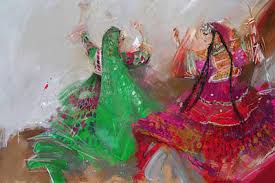
Bs 2nd semester
Course description:
This course (Sufism / Tasawwuf (تصوف) and Pashto Literature) is divided into three main portions.
First part offers a comprehensive understanding of spiritualism and sufism. It provides detail discussion about misunderstanding regarding Sufism as a separate religion. Apart from this, spiritualism in major religions will also be one of the topics of this portion.
The second part of this course covers sufism only which includes topics: Sufism before the advent of Islam, Sufism after Islam was revealed to the holy prophet (PBUH), Sufism during the reign of caliphs.
Third and main section of this course is sufism in Pashto literature which commences from the very first period of Pashto literature. Whereas, the most important part of this course is Rowshani period where the scholars have to study the sufic thoughts of Rowshani movement in the light of the poetry of Rowshani poets. However, the sufic thoughts and its impacts in the poetry of Khushal Khan Khattak, Rehman Baba and Hamza Khan Shinwari is also part of this course.
Learning Out comes: After having studied this course, students will be able to know about:
1. Introduction to Spiritualism in world's religions.
2. Evolution of spiritualism and Sufism.
3. The basics of Sufism.
4. Sufism in the light of Quran and Hadith.
5. Most popular theories in Sufism.
6. Advent of Sufism in
Pashto Literature.
7. Sufism in Rowshani Period.
8. Sufism in the poetry of eminent pashto classic poets Khushal Khan Khattak, Rehman Baba and Amir Hamza Khan Shinwari.
Recommended Books:1. Andreyev, Sergei. Sufi Illuminati: The Rawshani Movement in Muslim Mysticism, Society and Politics. London: Curzon Press, 2000.
2. Nicholson, R.A. Studies in Islamic Mysticism. Cambridge, UK: Cambridge
University Press, 1921.
3. Prof. M.M. Sharif, A History of Muslim Philosophy, Vol.1, Royal, Book Company, Saddar, Karachi, 2007.
4. Schimmel, Annemarie. Mystical Dimensions of Islam. Chapel Hill, NC: University of North Carolina Press, 1975
5. Basheer Ahmed Dar, Tarikh-e-Tasawwuf Qabal Az Islam, Idara Saqafat-e- Islamia Lahore, 2013.
6. Dr. Mir Wali Uddin, Quran Aur Tasawwuf, City Book Point Karachi, 2009
7. Dr. Abu Saeed Noor Uddin, Islami Tasawwuf Aur Iqbal, Iqbal Academy Karachi, April, 1959.
8. Akhond Darweza, Mukhzan, Muratab, Taqweem Ul Haq Kaka Khail, Pashto Academy University of Peshawar, 2nd Edition, 1987.
9. Bayazeed Ansari, Khair Ul Bayan, Muratab, Muhammad Masoom Hotak, Allama Rashad Khaparandoye Toalana, Kandahar, 1396
10. Mirza Khan Ansari, Diwan, Muratab, Dr. Pervaiz Kheshki, Pashto Academy University of Peshawar, 2005.
11. Abdul Rehman Baba, Diwan, Muratab Habib Ullah Rafey, Sidiqui Khaparandoye Tolana, Quetta, 2010.
12. Muhammad Akbar Kargar, Pa Hal Nama Ke Da Bayazeed Irfani Au Falsafi Sera, Da Afghanistan Da Aloomo Academy, 2006.
13. Saif-Ur-Rehman Masood, Peer Rowshan Aur Rowshani Inqiblab, University Book Agency Khyber Bazar Peshawar, 1998
14. http://www.khamush.com/books/Mystics_of_Islam.pdf
16. https://csrs.nd.edu/assets/59930/williams_1902.pdf
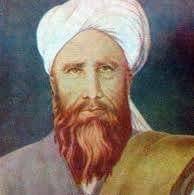
MA 2nd Year
MA 2nd Year
MA 2nd Year
BS 5th Semester
BS 5th English
BS English 5th Semester
MA 3rd Semester (English Literature)
MA English 3rd Semester
MA English Literature 3rd Semester
MA 1st Semester
MA 1st Semester
MA 1st Semester
MA Semester 1
M.A. English Literature, Semester-03
This course introduces the historical and multidisciplinary development of literary and critical approaches. It considerably focuses the poetic and dramatic forms to highlight substantial trends and concepts. The course anticipates to boost students’ critical and analytical abilities when it comes to the questions how to understand literature through the lens of criticism? Why Classical, Renaissance and neo classical literary criticism inspires the modern one? Or why to study “English” literature or literatures in “English”? This is an important and foundational requirement for any onward literary study and research.
This course commits to
• Broaden students’ ability to take texts and on-board to discover Critical or Literary Theories, forms, devices and undercurrent themes.
• Develop critical thinking to evaluate or rank literary works.
• Build up students to compare the orientation of techniques in different texts.
• Encourage scholars to generate and integrate distinctive ideas autonomously.
• Create proficiency for students’ future research to be effective, creative and launching up-to-the-minute scope in the subject.
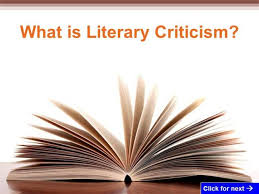

BS English Literature 1st Semester

MA 1 English
MA 1 English
MA 1st Semester
The purpose of this course is to explore the nature, function, and themes of Classical Greek/Classical drama in their theatrical, historical and social contexts. Through a detailed study of the texts by the selected dramatists such as Aeschylus, Sophocles, Euripides, Aristophanes, Seneca etc... the course traces the development of the key features of tragedy and comedy.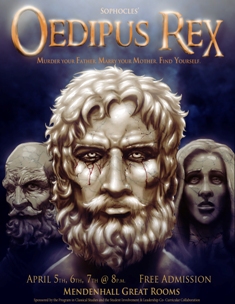
BS English 3rd semester


2nd Semester
First Semester
M.A URDU 1ST SEMESTER 2020
M.A URDU 1ST SEMESTER 2020
M.A URDU 1ST SEMESTER 2020
M.A URDU 3rd SEMESTER
M.A URDU 3rd SEMESTER
M.A URDU 3rd SEMESTER
BS URDU 3rd SEMESTER
BS URDU 3rd SEMESTER
BS URDU 3rd SEMESTER
BS URDU URDU 3rd SEMESTER
BS URDU 2ND SEMESTER
BS 2ND SEMESTER
BS 2ND SEMESTER
BS 2ND SEMESTER
BS URDU 2ND SEMESTER
MA Political Science 3rd Semester
BS Political Science 2nd Semester
BS Political Science 4th Semester
BS 5th Semester
BS 5th Semester
BS 5th Semester
BS Sociology 5th Semester
BS Sociology 3rd Semester
BS Sociology 3rd Semester
MSC Sociology 3rd Semester
MSC Sociology 3rd Semester
MSC Sociology 1st Semester
MSC Sociology 1st Semester
Classical Sociological Theories
First semester 3 Credit Hours
Objective:
The course provides a review of classical sociological theorists to contemporary sociological thinking. It focuses on the content and utility of classical theories in terms of understanding social world. While the course provides a general history of sociological theory, the focus remains on examining how classical theories have provided the basis for a better understanding of the character and dynamics of societies around the world. The contents of the course also help understand the nature of contemporary sociological theories.
Course Outline
1. Background
a. Social Forces
b. Intellectual Forces
c. French Revolution
d. Enlightenment
2. Development of Sociological Theory
a. Theory and Knowledge
b. of Sociological Theories
c. Inductive and Deductive
d. Process of theorizing
3. August Comte
a. Positivism
b. The law of Human Progress
c. Social Static & Dynamic
4. Emile Durkheim
e. Rules of Sociological methods
f. Division of Labour
g. Theory of Religion
h. Theory of Suicide
2. Karl Marx
a. Communist Manifesto
b. Socialism
c. Class Conflict
3. Herbert Spencer
a. The law of Social Evolution
b. Organic Sociology
c. Evolution of State
4. Max Weber
a. Sociology of Social Action
b. Bureaucracy
c. Protestant Ethic and the Sprit of Capitalism
Recommended Books:
1. Farganis, James (2000). “Readings in Social Theory: The Classic Tradition to Post-Modernism (3rd Ed.)”. Boston: McGraw Hill.
2. Kinloch, Graham C. (1977). “Sociological Theory: Its Development and Major Paradigms” New York: McGraw Hill.
3. Ritzer, George (2002). Sociological Theory (10th edition). New York: McGraw Hill.
4. Blalock, Hubert M. (1969) Theory Construction from Verbal to Mathematical Formulation (Ed). N.J.; Prentice Hall Inc.
5. Bronner, Stephen Erick (latest ed.) Critical Theory and Society-A Reader, London; Routledge and Kegan paul.
6. Cooley, C.H. (1962). Social Organization, New York: Scrichnes Books.
7. John, J. Macionis. 2004. Sociology, 10th edition. Hardcover
8. Ross, H. Laurence (1963). Perspectives on the Social Order, New York: McGraw-Hill Book Company, Inc.
9. Imasheff, N. and G.A. Theoderson, (1976) Sociological Theory: Its Nature and Growth, New York: Random House.
10. Calhon, Craig. Ed. 2007. Contemporary Sociological Theory. 2nd ed. Malden, USA: Blackwell Publishing.
11. Wallace, Ruth A. & Alison Wold. 1991. Contemporary Sociological Theory. Continuing the Classical Tradition. New Jersey: Prentice Hall
12. Waters. Malcolm. 1994. Modern Sociological Theory. London: Sage Publications
13. Appelrouth Scott. 2007. Sociological Theory in the Contemporary Era: Text and Readings. London: Pine Forge Pres
MSC 1st Semester
MA Social Work 3rd Semester
MA Social Work 3rd Semester
Course description:
This course introduces theories and perspectives associated with psychology and sociology that are relevant to social work practice. Its aim is to demonstrate how psychological and sociological theories and concepts can inform and expand our understanding of people’s behavior and circumstances and explores ways in which this knowledge can be applied to social work practice. It also considers applying concepts of culture and diversity as a means of understanding the role played by individuals’ environmental context, including their social systems and supports.
Learning Outcomes:
1. Identify possible influences on individual and group behaviors that link with psychological theories.
2. Identify possible influences on individual and group behaviors that link with sociological theories.
3. Demonstrate skills in applying concepts of inequalities and diversity as they apply to people’s behavior and circumstances.
4. Demonstrate awareness of the link between psychosocial concepts and theories and anti-oppressive practice for social workers.
5. Apply psychological and sociological theories and concepts to the assessment of complex situations outlined in case studies.
Recommended books and readings:
1. COGNITIVE_BEHAVIOUR_THERAPY_A_PRACTIC By [Danny_Lam]
2. Theories_for_direct_social_work_practice By [Joseph_Walsh]
3. Understanding_and_Using_Theory_in_Social work By [Juliette_Oko]
Marx's_Theory_of_Crisis By [Simon_Clarke
MA Social Work 1st Semester
MA Social Work 1st Semester
MA Social Work 1st Semester
MA Social Work 1st Semester
Course description:
The course provides an in-depth discussion of theoretical perspectives and research findings that have helped to increase our knowledge and understanding of factors that influence our physical, cognitive, and psychosocial development. It also provides an in-depth discussion of factors that may affect our overall health and sense of wellness, including chronic stress. The theories and research findings on human development are discussed and integrated with relevant theories and research findings in the area of health psychology, giving special attention to stress-related health issues.
Course Objectives:
The aim of the course is to enable the graduates of social work to comprehend the the personality structure of the client. It also interprets the personality dynamics of the human being while working as a team member in Social work settings.

BS Social Work 3rd Semester
BS Social Work 3rd Semester
BS 2nd Semester
Course Description:
This course provides an introduction to the concepts and theories of psychology and to their application to real life situations. Topics include history, research methods, sensation, perception, consciousness, stress and coping, learning, memory, motivation and emotions.
Upon successful completion of this course,
the student will have reliably demonstrated the ability to:
1. Differentiate between scientific and non-scientific information about human
behaviour and mental processes.
2. Describe major developments and research methods used in psychology.
3. Explain psychological processes involved in sensation, perception, learning,
memory, motivation, emotion, states of consciousness and health.
4. Analyze the variety of factors affecting sensation, perception,
consciousness, learning, memory, motivation, emotion, and health.
5. Apply psychological concepts and principles to situations in everyday life.
Recommended books:
1) Understanding Psychology By (Glencoe)
2) Psychology and Life By (Richard Gerrig and Philip Zimbardo)
3) Psychology By (Neil R. Carlson)

BS Social Work 2nd Semester
M.A 1st & 3rd Semester
BS International Relations 2 ND AND 4 TH SEMESTERS: A new book s been uploaded so please do read it.
M.A 1st and 3rd Semester students in department of International Relations

BS DMDS, Semester
-3 (Session 2018-22)
BS DMDS Semester
-3 (Session 2018-22)
Semester 3 (Session 2018-22)
Disaster Management and Development Studies
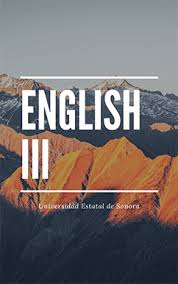
|
BS DMDS Semester -2 (Session 2019-23) |
This course introduces students to theories of classical and contemporary jurisprudence and the issues debated within them. Jurisprudence provides a discipline of thought and is extremely helpful in improving the logical analysis of the legal concepts. The focus of course will be on the nature, origin and development of law and legal concepts. In this component the focus will be on legal theories such as Natural Law theory, Positive theory, the nature of legal reasoning, legal realism, sources of law and Precedents. This is a vital course designed to cultivate in students the ability to reason persuasively and encourage students to develop a clear picture of the overall conceptual framework within which legal thoughts operate.
SYLLABUS
MODULE: I JURISPRUDENCE AS A SCIENCE
Unit # 01 Introduction to Jurisprudence
MODULE: II LEGAL THEORY
Unit # 02 Legal Positivism
Unit # 03 Natural Law Theory
Unit # 04 Legal Realism
Unit # 05 HLA Hart’s Theory of Law
MODULE: III SOURCES OF LAW
Unit # 06 Introduction
Unit #07 Legislation
Unit # 08 Custom
Unit # 09 Precedent
RECOMMENDED BOOKS:
1. Austin, John. The Province of Jurisprudence Determined and the Uses of the Study of Jurisprudence with an Introduction by H.L.A. Hart. Indianapolis: Hackett, 1998.
2. Friedmann, W. Legal Theory, 8th edn. London: Stevenson, 2008 (rpt.).
3. Harris, J.W. Legal Philosophies, 2nd edn. London: LexisNexis, 2005.
4. Hayman, Robert L and Levit, Nancy et al. (ed.) Jurisprudence: Classical and Contemporary: From Natural Law to Postmodernism. St. Paul: West, 2002.
5. Holland, Sir Thomas E. The Elements of Jurisprudence, 13th edn. New Delhi: Universal, 2010 (rpt.).
6. Leimer, Edger B. Jurisprudence: The Philosophy of Method and Law 6th edn. California: Harvard University Press, 2009.
7. Nyazee, Imran Ahsan. Jurisprudence, Islamabad: Advanced Studies Legal Institute, 2007
8. Posner, Richard A. Frontiers of Legal Theory. Delhi: Universal, 2010 (2nd I rpt.).
9. Rawals, John. A Theory of Justice, 3rd edn. Delhi: Universal, 2008 (rpt.).
10. Raz, Joseph. The Concept of a Legal System: An Introduction to the Theory of Legal System, 2 nd edn. Oxford: Clarendon, 1980.
11. Stone, Julius. Social Dimensions of Law & Justice, New Delhi: Universal, 2012(3rd rpt)
12. Wacks, Raymond. Jurisprudence, 5th edn. Oxford: OUP, 1999.
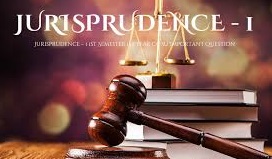
BS 2nd Semester
BS 2nd Semester
This course (FOR BS Mathematics 3RD SEMESTER) offers methods and techniques useful in optimising communication and presentation skills of the learners, enabling them to face divergent groups of audience with confidence. The course encourages modules relating to the contents and technology use associated with communication and presentations skills. The course will encourage students’ interpersonal and intrapersonal communication skills through numerous assignments and activities including writing reports, official correspondence with professional undertones. Additionally, this course will enhance speaking skills with emphasis on appropriate body language and logical reasoning to convey messages to audience lucidly.

BS (Mathematics) 3rd Semester
This is the third course of calculus and builds up on the concepts learned in the first two courses. Calculus 3, also called Multi-variable Calculus or Multivariate expands upon your knowledge of single-variable calculus and applies it to the 3D world. In other words, we will be exploring functions of two variables which are described in the three-dimensional coordinate systems. Most importantly, Calc 3 encompasses limits, derivatives, and integrals so all of these concepts that you previously learned in Calculus 1 and Calculus 2. First, we will begin by learning about vectors and the geometry of space, which deals with writing equations of lines and planes, operations with vectors, and quadric surfaces. We will learn how to differentiate and anti-differentiate vector functions and discover how they describe motion in space – velocity and acceleration. We will show how to find Partial Derivatives, Gradient Vectors, Directional Derivatives. Additionally, we will determine how to evaluate limits of multi-variable functions, as well as finding extrema (maximums and minimums) of various surfaces. We will learn how to evaluate multiple integrals to find area, volume, and work done by a force field or the rate of fluid flow across a surface.

BS Mathematics 4th semester
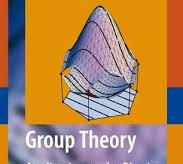
MSc Mathematics 1st Semester
Topology is the generalization of metric space. The word Topology is composed of two words: Top (means twisting instrument), Logy (a Latin word
means Analysis). So Topology means twisting analysis. To describe the subject
of topology is to say that it is qualitative geometry. The idea is that if one
geometric object can be continuously transformed into another, then two objects are to be
viewed as topologically the same. For example, a circle and a square are
topologically equivalent. Physically, a rubber band can be stretched into the
form of either a circle or a square. A figure eight curve formed by two circles
touching at a point is to be regarded as topologically distinct from a circle
or square. The term used to describe two geometric objects that are
topologically equivalent is homeomorphic. Thus a circle and a square are
homeomorphic.

RESEARCH PROJECT MSC Mathematics 3rd Semester

For M.Sc Mathematics, THIRD SEMESTER 2020
If the students are already enrolled by DIT, UoB. ,then mail for for self enrolment . For any consultation you can mail at umarfarooq71965@gmail.com.
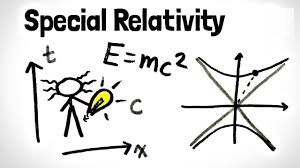
BS 2nd Semester Physics
This course for BS Physics 3rd Semester offers methods and techniques useful in optimising communication and presentation skills of the learners, enabling them to face divergent groups of audience with confidence. The course encourages modules relating to the contents and technology use associated with communication and presentations skills. The course will encourage students’ interpersonal and intrapersonal communication skills through numerous assignments and activities including writing reports, official correspondence with professional undertones. Additionally, this course will enhance speaking skills with emphasis on appropriate body language and logical reasoning to convey messages to audience lucidly.

BS Physics 2nd Semester
BS Physics 2nd Semester
MSc Physics 1st Semester
PHY- 607 CIRCUIT THEORY Credit Hours: 4(3-1)
OBJECTIVE: To study the combinations of circuits, related laws and rules, different techniques of circuit analysis, network theorems, charge storing devices and make the students familiar with circuit maker software.
CONTENTS (1) Introduction: Resistance, temperature effect on resistance, thermistors, super conductors, types of resistors, varistor, strain gauge, resistor color code, ohms law, power, and energy, efficiency, home electricity billing system.
(2) Series and parallel circuits: series circuit, voltage sources in series, Kirchhoff‟s voltage law, voltage divider rule, voltage sources and ground, voltage regulation and the internal resistance of voltage sources, protoboards (breadboards), parallel circuit, Kirchhoff‟s current law, current divider rule, voltage sources in parallel, open and short circuits, series and parallel combinations, potentiometer loading
(3) Method of analysis: current sources, source conversions, current sources in parallel, current sources in series, branch-current analysis, mesh analysis (general approach), mesh analysis (format approach), nodal analysis (general approach), nodal analysis (format approach), bridge networks, y- delta and delta –y conversions,
(4) Network theorem: Superposition theorem, Thévenin‟s theorem, Norto‟s theorem, maximum power transfer theorem, Millman‟s theorem, substitution theorem, reciprocity theorem
(5) Capacitors: Capacitance, capacitor construction, internal structure and capacitance analysis, types of capacitors, temperature effects, capacitor labeling, transients in capacitive networks (the charging phase, discharging phase), instantaneous values, capacitors in series and in parallel, energy stored by a capacitor
(6) Inductors: Magnetic field, electromagnets and their applications, inductance, inductor construction, induced voltage, RL transients, reluctance, ohm‟s law for magnetic circuits, magnetizing force, Ampère‟s circuital law, RLC series and parallel circuits.
Practical: 1. Prove of Kirchhoff voltage law using Series circuits.
2. Prove of Kirchhoff current law using parallel circuits.
3. Determine the charge discharge effect of capacitor.
4. Determine instantaneous values, capacitors in series and in parallel
5. Study of RL/ RLC circuits
6. Prove of Thevenin Theorem
7. Norton Theorem
8. Maximum Power transfer theorem
SOFTWARE: Analysis of circuits in all chapters using multisim or circuit maker software BOOKS RECOMMENDED
1. Robert L. Boylestad. Introductory Circuit Analysis, 11th /e,
2. Hayt & Kimberly Circuit Analysis - Electrical and Computer Engineering, McGraw-Hill Book Company 8th /e
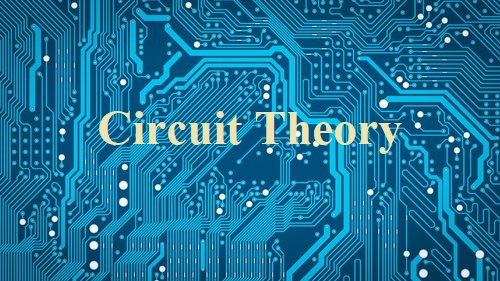
BS Physics second semester
BS Physics 3rd Semester
MSc Physics 3rd Semester
In the research paper or project students need to select either writing review article or working on a project.

MSc Physics 3rd Semester
MSc Physics 3rd Semester
This course will cover fundamentals of analog and digital communications. It gives the basics of signals, systems, modulation, analogue modulation and its types, digital modulation and its types and generation and demodulation of electronics communication signals. The concept of cellular mobile communications will also be discussed in the context of frequency reuse, cell clustering, hand-off strategies and roaming.
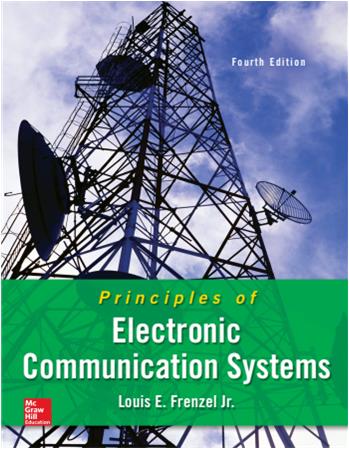
MSc Physics 3rd Semester
MSc Physics 1st Semester
MSc Physics 1st Semester
BS Statistics 2nd Semester
BS STATISTICS 3rd Semester
BS Statistics 3rd semester
BS Statistics 2nd semester